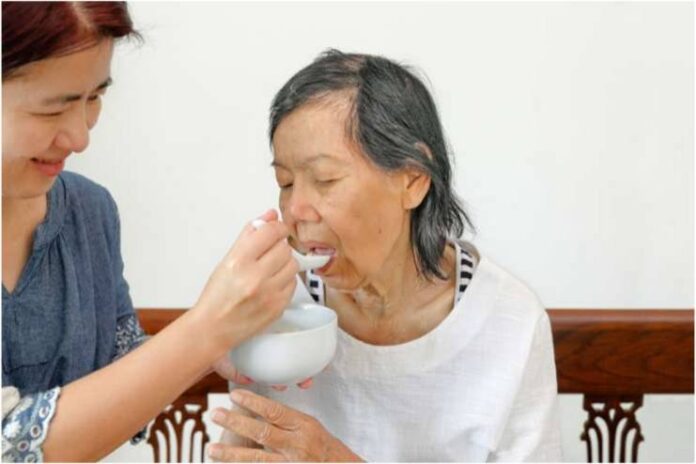Affiliate Disclaimer
Some links in this article are affiliate links. We may earn a small commission if you make a purchase through these links, at no extra cost to you. We only recommend products we find useful to our readersHuman longevity has increased significantly due to advancements in healthcare and living environments. Even if growing older is a cause for celebration, it has difficulties. It takes a careful balance to meet the requirements of aging loved ones while protecting one’s health and well-being when caring for elderly parents, which is a complex task.
A multifaceted strategy is required to guarantee the overall well-being of senior parents and the people who look after them as the problems related to caregiving become more widespread as our society ages. It takes careful balancing to offer healthcare, emotional support, and practical assistance. The framework for exploring the difficulties and methods necessary to attain this balance in the context of caregiving is provided in this introduction.
Understanding the Caregiver Role

1. Challenges and Responsibilities
Caregivers with compassion and resiliency must overcome the emotional and physical obstacles of caring for aging parents. Family caregivers frequently spend a lot of time providing care, which can be incredibly taxing for those looking after a spouse or partner. Providing care can be quite rewarding. It feels nice for most caregivers to take care of a loved one. It can also strengthen your relationship.
However, the care responsibilities often lead to physical and mental strain. Feelings like rage, frustration, exhaustion, or sadness are prevalent. It’s also expected to feel isolated. Stress among caregivers can increase their chance of experiencing changes in their health. Here are a few main difficulties you could encounter when caring for an older loved one.
Issues with Daily Tasks and Mobility: People’s mobility and agility naturally deteriorate with aging. It might make doing routine tasks difficult. As the caretaker, you must handle these duties in some situations. However, depending on their capabilities, you can help them live more independently through programs emphasizing mobility, safety, balance, and fitness.
Getting Around in Healthcare: Navigating the healthcare system can be very challenging, especially if your loved one has a chronic illness. Elderly patients frequently see a variety of medical specialists, so it’s critical to make sure that all appointments are scheduled in a coordinated manner and that each specialist is informed about the patient’s medical history.
Mental Disorders: Antiquated misconceptions about senior people cause a lot of older individuals to feel alone or alienated. Your senior loved one can draw on their expertise and wisdom while retaining a sense of individuality and self-worth at social gatherings.
Money-related issues: There’s also the issue of handling daily money and ensuring enough is saved for retirement. It is further exacerbated by investing and paying bills being primarily done online these days. Some older persons may find it challenging to complete this task independently and be more susceptible to fraud and scams.
Keeping aging parents physically well requires a proactive strategy that includes frequent health checks, exercise, and proper nutrition. Caregivers are essential to guarantee that their loved ones have access to well-balanced meals that meet their individual dietary requirements. Older people can significantly benefit from appropriate exercise regimens that are facilitated and encouraged as long as they can do so.
Caring for others while managing your life is a complex but necessary endeavor. You can look for help, delegate, create boundaries, prioritize self-care, and cultivate gratitude to care for your loved one and yourself simultaneously.
2. Nurturing Elderly Health
Keeping aging parents physically well requires a proactive strategy that includes frequent health checks, exercise, and proper nutrition. Caregivers must guarantee that their loved ones have access to well-balanced meals that meet their dietary requirements. Older people can significantly benefit from appropriate exercise regimens that are facilitated and encouraged as long as they can do so.
Healthy aging can be facilitated by leading an active lifestyle and eating well. Making small changes can significantly impact the development of more nutritious eating habits. Chronic disease conditions like heart disease, type 2 diabetes, arthritis, cancer, and dementia are more common as people age. Older persons can achieve an extended and better life by implementing and upholding a few essential practices.
Select foods low in sodium, saturated fats, and added sugar. Add fish, dairy, or fortified soy products to your meals, along with legumes, beans, and peas, to ensure you get enough protein throughout the day and retain muscle mass. Eat less salt by adding herbs and citrus, such as lemon juice, to your food.
Vigilantly provide medical supervision and care. Routine health examinations, enabling early identification and action, form the cornerstone of preventative healthcare. To guarantee that prescription drugs are taken as instructed and that any potential side effects or complications are swiftly addressed, caregivers must set up a robust system for medication management.
Healthcare providers can treat any adverse effects, assess the efficacy of these medications, and make any required adjustments during routine check-ups. Certain illnesses and ailments, like cancer and cardiovascular disease, are more common in seniors. Preventive screenings such as mammograms, colonoscopies, and blood tests are part of routine check-ups that aim to identify possible issues early on.
Seniors who schedule routine check-ups can also talk to their healthcare professional about any worries or symptoms they may be having. It makes it possible to identify and treat any underlying problems promptly.
Prioritizing Caregiver Well- Being

3. Self-Care for Caregivers
Caregivers must understand that their well-being is a need, not a luxury, in the complex dance of caregiving. Self-care is essential to maintaining one’s capacity to deliver care efficiently; it is not selfishness. This concept encompasses all aspects of maintaining physical health, such as proper cleanliness, eating habits, and seeking medical attention when necessary. It contains all the actions a person can do to handle stressors in their life and look after their health and well-being.
Helping others can only come from helping ourselves first. One of the most crucial—and most overlooked—things a caregiver can do is take care of themselves. The individual you care for will also benefit when your needs are met. In this context, stress management strategies and mental health support are essential. Caregivers should schedule time for things that lift their moods; this could be as simple as taking a quick daily stroll, taking up a hobby, or just spending some quiet time alone to unwind.
Caregivers need to remember that their health is just as vital as the health of the person they are looking after. Caregivers who practice self-care can:
- Maintain their emotional well-being.
- Boost their ability to feel.
- Avoid burnout.
- Provide a good example.
Caregivers need to get over their inclination to carry everything by themselves. Joining caregiver support groups or asking friends and family for assistance can be a great way to share experiences, wisdom, and emotional struggles.
Caregivers require help and encouragement. Seeking assistance does not indicate weakness; instead, it reflects their challenging work, a job that necessitates self-care. Additionally, caregivers are better able to look after their loved ones when they are at their best.
It is unnecessary to make as many friends as possible to do so if one is a caretaker with a network of family and friends that support them. Instead, the goal should be to concentrate on and fortify the few significant ties one has with a select group of individuals in their social circle. Social isolation is one of caregivers’ most prevalent and excruciating problems.
You will need more than spending time with one person to meet your social requirements, no matter how much you love the person you care for.
Socialization is essential when it comes to preserving your identity while you’re not acting as a caretaker. Diverse personal interactions are crucial for developing a comprehensive and nuanced sense of self.
4. Finding Balance and Support
Retaining caregiver well-being requires a delicate balance, which can be obtained by setting boundaries. Frequently, caregivers experience a great deal of guilt, perhaps at the expense of their well-being. For caregiving to be sustainable, it is acceptable and necessary to set reasonable expectations and limitations. It is a self-preservation tactic to acknowledge and successfully communicate one’s boundaries.
Although many individuals know the definition of borders, only some understand what they are. Boundaries are often associated with a “brick wall” or property line meant to keep people out.
However, boundaries are not inflexible; visible lines are written in the sand. Setting limits helps us to look after ourselves. Resentment, disappointment, and rage that arise when boundaries are crossed can be avoided by learning how to establish and uphold appropriate boundaries.
Physical limitations are one type of boundary. For example, you may ask your partner to refrain from looking through your phone or from interfering while you’re working. They can also be psychological, such as asking your partner to acknowledge that sometimes your aspirations and goals won’t align with theirs.
Developing emotional stress management skills is essential to maintain your well-being and your capacity to give high-quality care. However, before effectively addressing family caregiver stress, you must understand how to spot its early warning symptoms. When necessary, caregivers should be willing to seek out expert aid. When given by qualified experts or other reliable people, respite care provides momentary relief and lets caregivers refuel. Instead of indicating weakness, this break is a calculated decision to provide long-term, high-quality treatment.
Seeing a therapist regularly can provide professional assistance in addition to joining a support group. These experts can provide the resources and strategies you require to handle the emotional strain of providing care. Getting professional assistance, whether in the form of counseling or support services, can provide caregivers the skills they need to manage their job’s emotional challenges and advance their own and the well-being of the people they are responsible for. Setting caregiver well-being as a top priority is a sign of self-love and a critical first step in creating a compassionate and long-lasting caregiving journey.
Conclusion
It’s important to balance the well-being of caregivers while providing care for elderly parents in the complex web of caregiving. This careful balance prevents caregiver burnout and guarantees ongoing assistance for aging loved ones. Let’s reiterate the importance of caregivers putting their health first as we come to an end. Caregivers who care for themselves strengthen their resilience and increase their ability to deliver the best possible care. Setting holistic health as a top priority in this care journey becomes a mutually beneficial exchange that benefits the caregiver and the beloved senior patients receiving their steadfast care.
References
- https://www.mayoclinic.org/healthy-lifestyle/stress-management/in-depth/caregiver-stress/art-20044784
- https://scnova.org/major-challenges-to-expect-when-caring-for-the-elderly/
- https://loverightcare.com/willbhawk3/caregivers/how-to-balance-caregiving-with-your-own-life/03/29/2023/
- https://www.nia.nih.gov/health/healthy-eating-nutrition-and-diet/healthy-meal-planning-tips-older-adults
- https://www.niddk.nih.gov/health-information/weight-management/healthy-eating-physical-activity-for-life/health-tips-for-older-adults
- https://betterhealthwhileaging.net/how-to-promote-physical-health-for-healthy-aging/
- https://friendshipcenters.org/the-importance-of-regular-check-ups-for-seniors/
- https://mypvhc.com/importance-regular-check-ups/
- https://www.ucsfhealth.org/education/self-care-for-caregivers
- https://www.caregiver.org/resource/taking-care-you-self-care-family-caregivers/
- https://www.everydayhealth.com/self-care/
- https://www.cdc.gov/aging/publications/features/supporting-caregivers.htm
- https://bluemoonseniorcounseling.com/the-value-of-social-support-for-caregivers/
- https://www.healthhub.sg/live-healthy/buildingasupportivenetwork
- https://www.helpguide.org/articles/relationships-communication/setting-healthy-boundaries-in-relationships.htm
- https://www.homecare-aid.com/how-to-manage-the-emotional-stress-of-being-a-caretaker/
In this Article

















